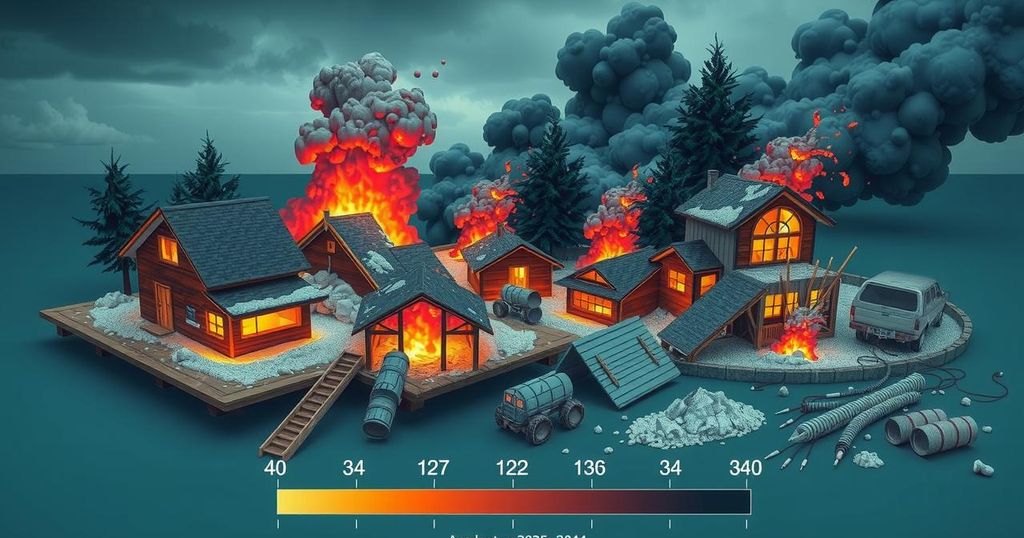2024 Climate Disasters: Damages Exceed 200 Billion Dollars, Urging Global Action

Christian Aid reports that the top 10 climate disasters in 2024 caused damages exceeding 200 billion US dollars, primarily affecting the United States and Europe. Hurricane Milton was the most costly, with 60 billion US dollars in damages. The report emphasizes the urgent need to address climate change, reduce emissions, and support financially vulnerable nations in coping with these catastrophic events.
In 2024, climate-related disasters inflicted damages exceeding 200 billion US dollars, as reported by Christian Aid. The charity’s analysis highlighted that the ten most costly events each incurred losses of over 4 billion US dollars. These figures primarily represent insured losses, indicating that the actual financial toll is likely to be significantly higher. Christian Aid emphasizes the urgent need for action to reduce greenhouse gas emissions and to provide financial assistance to developing nations adversely affected by climate change.
Among the most catastrophic events, Hurricane Milton emerged as the most expensive disaster, resulting in a staggering 60 billion US dollars in damages after impacting the United States in October. Following closely was Hurricane Helene, with losses totaling 55 billion US dollars from its effect on areas including Mexico and Cuba. Despite the substantial economic impact of these storms, Christian Aid also pointed out other less costly but devastating disasters that disproportionately affected poorer regions.
The report underscores the increased frequency and severity of extreme weather events, which experts link unmistakably to climate change. Events such as the floods in China that resulted in over 15 billion US dollars in damages, and Typhoon Yagi, which claimed more than 800 lives while costing approximately 12.6 billion US dollars, exemplify the acute effects of climate-related catastrophes around the globe.
Christian Aid’s chief executive Patrick Watt asserted that the rising intensity of climatic disasters is a direct consequence of persistent emissions from fossil fuel usage. He emphasized the necessity for governments to honor their financial commitments to vulnerable nations and to spearhead transition efforts towards greener energy solutions. Furthermore, climate researchers noted that additional unreported instances of extreme weather are likely contributing to widespread suffering and economic strain globally.
In conclusion, the significant economic burden of the climate disasters in 2024 serves as a critical alert for policymakers to prioritize environmental action. The science is clear, and the technologies necessary for transitioning to a sustainable energy infrastructure are available. It is imperative for government leaders to mobilize these resources and enact measures to mitigate future climate-related impacts.
The escalating costs of climate-related disasters reveal the severe impact of climate change on global economies and ecosystems. As the frequency and intensity of extreme weather events such as hurricanes, floods, and droughts continue to rise, the associated financial damages have reached alarming levels. While developed nations often bear the brunt of economic losses due to higher property values and insurance coverage, poorer countries suffer devastating consequences despite less financial damage being reported. This disparity highlights the urgent need for enhanced climate action, funding for adaptation, and mitigation strategies to address the looming crisis.
The financial toll of climate disasters in 2024, exceeding 200 billion US dollars, underscores the urgent need for decisive action to combat climate change. The stark contrast between losses in wealthier nations and the suffering in poorer regions emphasizes the necessity for equitable solutions. As experts advocate for a green transition, it is crucial for global leaders to prioritize funding for vulnerable countries and implement strategies to reduce greenhouse gas emissions effectively. A proactive approach can mitigate future disasters and the associated human and economic costs.
Original Source: www.irishnews.com






